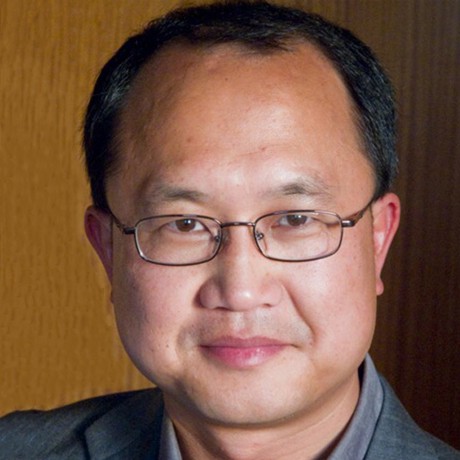
Tong Tin Sun Chair Professor of English
Professor Huang Yunte
A new perspective on English literature
Though Professor Huang Yun-te, Lingnan’s Tong Tin Sun Chair Professor of English, is very happy the teaching in his department focuses on Contemporary English Studies, he does want to see the subject set within its historical context. “It’s very difficult to study English literature without knowing its history. Having said that, I think contemporaneity is definitely an advantage, given that Hong Kong is a global city, lying at the confluence of cultures, and with so much flowing through it.”
This geographical and political positioning enables his department to stay in closer step with changes in the English-speaking and English-reading world.
Other ways of reading
“My department is actually hiring in the field of Anglophone world literature,” Professor Huang explains. This category encompasses literature from every continent, and along with the focus on new works, he also hopes to see new perspectives on classic texts.
“If a PhD student is writing a dissertation on William Faulkner, he or she could easily use German philosophy or Freudian psychoanalysis to read Faulkner. This is completely acceptable. But if they start using Confucianism to interpret Faulkner there is [currently] no way there dissertation would be approved. This is the kind of question I’m grappling with.”
After completing his undergraduate degree in his native China, Professor Huang took the unusual step for a Mainland literature student in the early 1990s, of heading to the United States to continue his studies. There he found a limited understanding of the origins of Chinese literature and the meanings it contains. He cites a headline-grabbing critique of the story of Mulan as a prime example.
Originally a Northern Chinese ballad, the tale was first reinvented in the States on the page, before being adapted for the screen by Disney. When current Vice President Mike Pence was a congressman, he wrote an opinion piece in the Wall Street Journal about the movie version. In this he claimed that Mulan was a story that had been invented by Hollywood to promote gay marriage.
Transpacific literature
The combination of encounters with these types of misinterpretations, along with the trajectory of his academic career, which included a period teaching canonical American modernism, as well as Asian American literature, at Harvard, led Professor Huang to reflect on his own roots and the way in which similar experiences were being expressed.
“The transpacific idea started out as a personal reflection, I wanted to bring China and North America together in a form of dialogue. In the beginning, though, it was more a traditional comparison between Eastern and Western literature.”
Professor Huang is wary both of focusing the concept on just China and the US, and of it becoming an expression of nationalist sentiment rather than an examination of the imbalance between the two traditions in terms of cultural prestige. As a field of study, transpacific literature now includes all the cultures of the Pacific Rim, and is an acknowledgment of the fact that when texts or people travel across the Pacific they are changed. “Part of the power of literature is its capacity to enable you to imagine how the other person feels,” he points out.
There is no avoiding the fact, however, that the two economic superpowers loom large in all aspects of life in the region. In a way, Professor Huang notes, Hong Kong occupies a marginal, or contingent, space between these two worlds. “I would say it’s an exciting time to be studying transpacific literature here, because Hong Kong provides a third space outside of those two centres. I find this position important, as it allows you to stand outside and observe.”
A feel for research
In his own, ongoing research on the works of poet Ezra Pound, Professor Huang says it was important for him to see and touch Pound’s manuscripts, typescripts and books. Reading the marginalia in an author’s copies of works by other writers can also yield significant insights.
In preparation for writing his creative non-fiction books, Charlie Chan and Inseparable, he visited the cemeteries where Chan and the Bunker twins are buried. He describes this as the equivalent of going through a writer’s archives as part of his search for an understanding of their life that goes beyond the bare facts.

